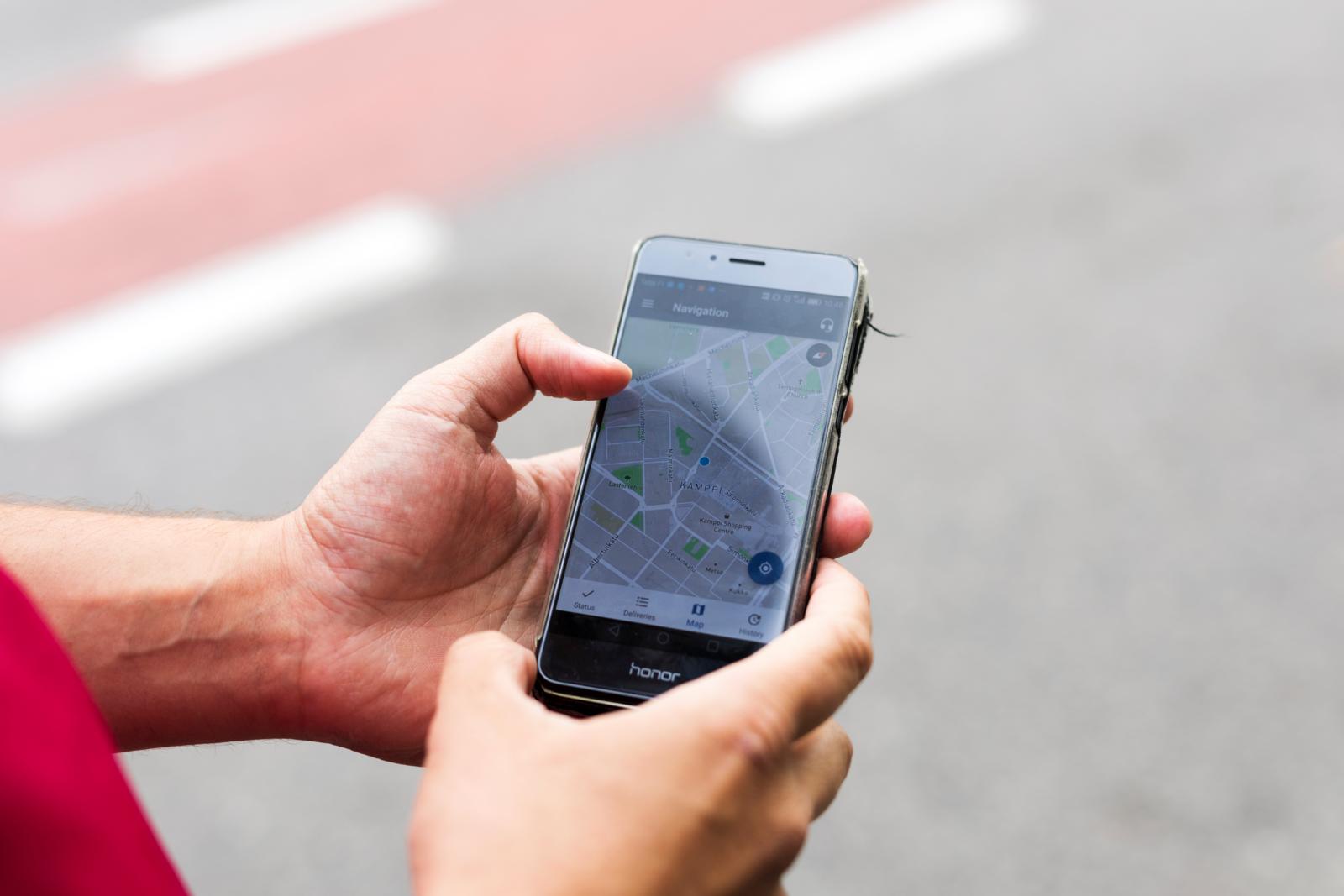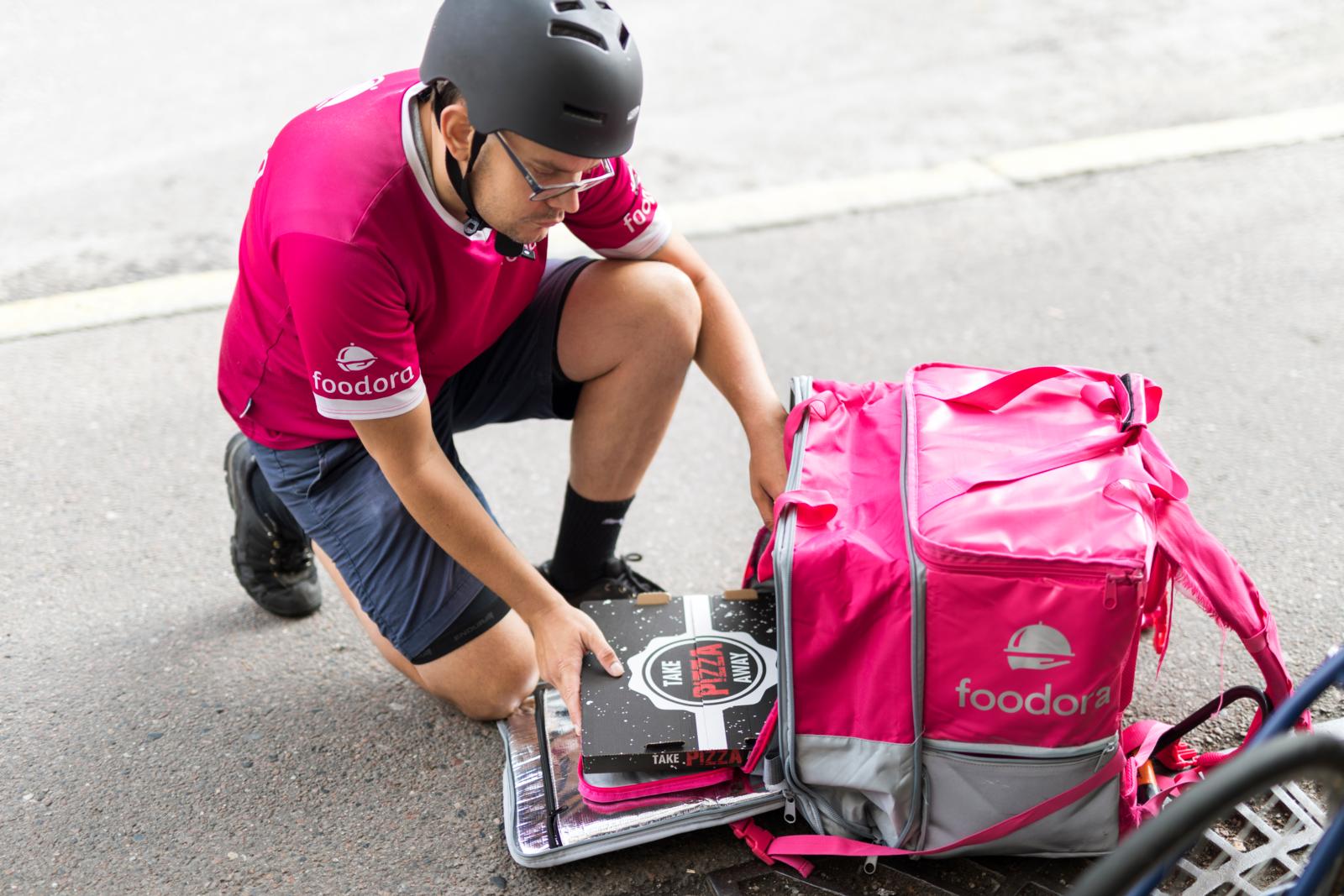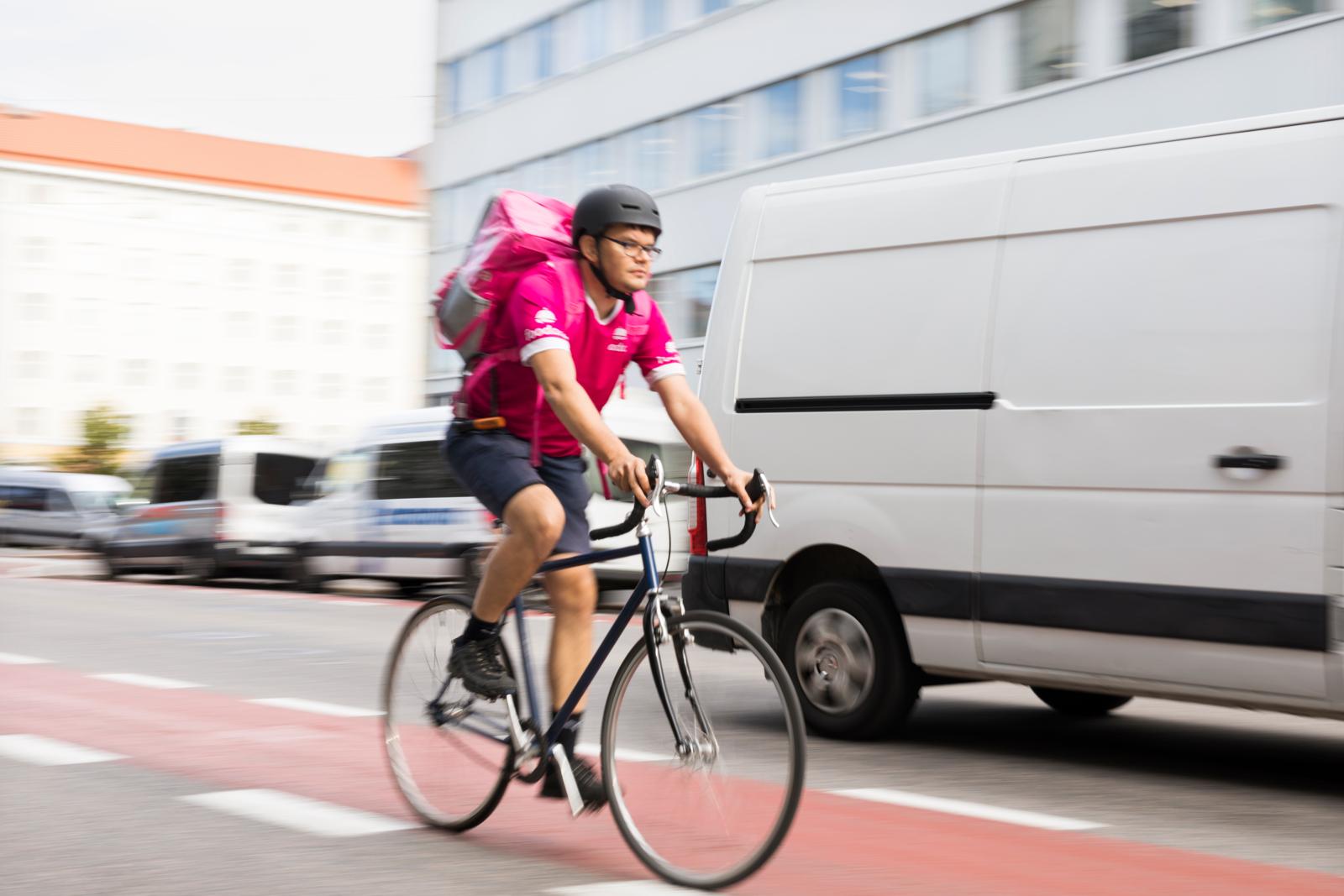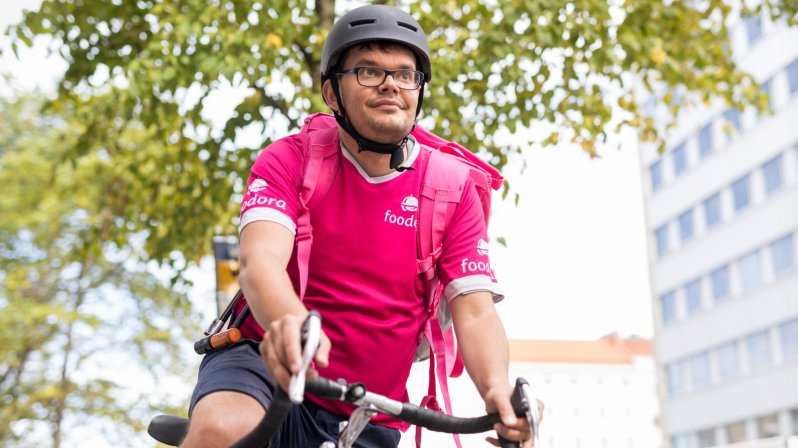Food couriers’ earnings at the mercy of an algorithm
Miran Hamidulla delivers meals to the customers’ doors. He is self-employed, and his livelihood depends on a mobile app.
Miran Hamidulla
Age: 36
Living in: Helsinki
Income: around 1000 euros monthly
Work: Bicycle courier, studying political history
Family: living alone
Hobbies: voluntary work
Miran Hamidulla, 36, locks his bike with a sturdy lock. The Helsinki morning rush is in full swing, and cars zoom past the café behind the Kamppi shopping centre. This is the heart of Helsinki, the domain of food couriers.
We sit for a morning coffee before Hamidulla starts his shift for Foodora. Like many couriers, he is self-employed, a freelancer, and works an average of approximately 20 to 25 hours per week. There are rarely any more hours available in the summer. With more couriers than shifts, there is fierce competition over gigs.
Typically, Hamidulla receives around €1,000 on his account each month. It’s enough for him, as his living expenses are lower than average and he has existing savings that provide some financial flexibility. He uses an invoicing service for “light entrepreneurs” to bill for his hours. It carries a fee, but it means he doesn’t have to spend his time doing paperwork.
Hamidulla takes a sip of his coffee and pulls out his smartphone. It is the most important tool for couriers. They book their shifts through an app and receive notifications of meal orders during their shifts.
The number of shifts available to Hamidulla at a given time depends on how high (or low) he is rated by the app.

“The shifts are allocated in four parts. The couriers with the highest ratings get to choose first. Then come the couriers with the second highest ratings, then those with the third and the fourth. Weekends and evenings are very sough-after, since there are more deliveries then and there’s a small bonus to the basic hourly rate. Those are the shifts that are the first to go,” he explains.
Hamidulla does not know the specific process the app uses to rate the couriers. But he does know how a courier can drop down to a lower category.
”Last year I was in a non-work-related accident that meant I could hardly do any shifts in May. That dropped my rating."
“One thing that can bring down your rating is unauthorised absences, or no-shows. You can cancel a shift 24 hours before it’s scheduled to begin. But if, for example, your bike breaks during the 24 hours before the shift and you can’t work, your rating will go down.”
Being late for more than five minutes can also lead to a lower rating or even an end to the work altogether. Hamidulla mentions an acquaintance who had worked as a courier for three years as an example. After being late a few times due to poor weather conditions, the acquaintance received a notification that no more work would be forthcoming.
“I don’t think a salaried employee would be fired for being a few minutes late. The algorithm doesn’t care if there’s traffic or a car courier’s car gets stuck in the snow.”

7,799.37 euros. That’s the limit entrepreneurs can make in a year before they have to start paying the statutory entrepreneur’s pension insurance (YEL insurance). It’s a significant expense, and takes up about a fifth of Hamidulla’s income. Hamidulla has had to find out about YEL and other fees for entrepreneurs himself. For example, couriers must pay for their own health insurance, accident and life insurance as well as any costs for tools. In contractual employment, these are the employer’s responsibility.
“We also don’t have any kinds of breaks or vacations. And the work does come with risks,” Hamidulla points out.
His expression becomes serious. This year he has heard of at least 12 couriers around the world who have died during their shifts.
“People are ready to take risks when their livelihood depends on it,” he says.

For people from immigrant backgrounds in particular, courier work may be their only source of income. It is the cause of these vulnerable couriers that persuaded Hamidulla to be interviewed for this story. He hopes that the conditions of courier work will be improved. The new Finnish government programme has noted this issue, and he believes it should be tackled immediately.
“In Norway, couriers are considered employers, not entrepreneurs. Why would this not work here too?” asks Hamidulla.
Coffee time is over. Hamidulla straps on his helmet, jumps on his bike and slips into the stream of traffic. The day’s shift has begun.
Income total: €750
Gross pay: €1,250
Net pay: €750*
*Deducted from the gross pay: value added tax, income tax, entrepreneur’s pension insurance fee, fee for the OP light entrepreneur service.
Expenses total €710
Apartment: €290
Bike maintenance and spare parts: €150
Free time and hobbies: €70
Food: €200
Income and expenses in this table taken from August 2019.



